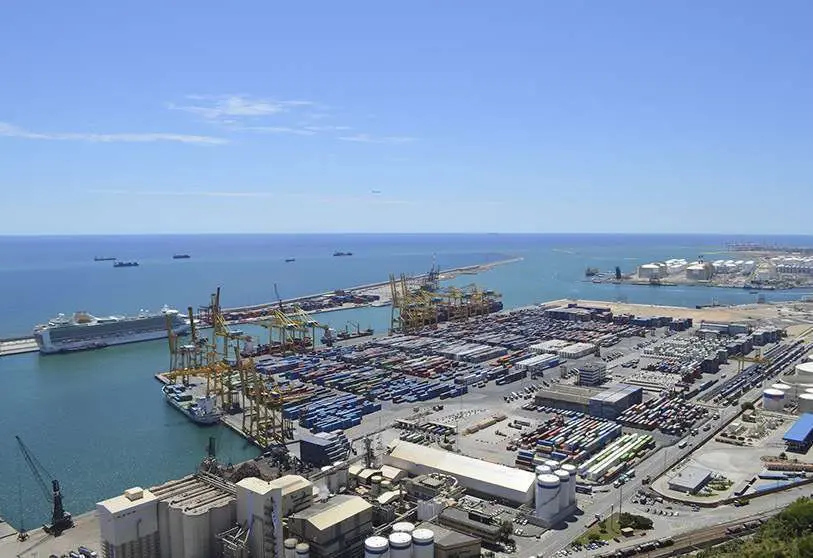Barcelona's role in the Mediterranean

November celebrated 25 years since the Barcelona Declaration. Despite the good intentions, the result does not live up to the aspirations of the Mediterranean people. However, many of the objectives of the process are still valid and it is therefore necessary to work towards improving shared prosperity based on south-south and north-south relations. Europe remains the leading economic partner of the southern countries of the eastern part of the Mediterranean. Economic, identity, refugee and pandemic crises have undermined the cohesion of EU Member States and Mediterranean countries, creating obstacles to progress in the regional integration process. This reminds us of the importance of the collective, of proximity, interdependence and the need for a long-term vision
We now face an unknown situation, a pandemic that has crippled our economies and confined millions of people. We are in the midst of an unprecedented tsunami that has devastated the entire global village. The historical record reveals that such a situation could alter political and economic systems, reconfigure sacred ideas and theories, and impose radical lifestyle changes.
The economic models in place are breathless because of the speed at which the changes are taking place. Many transformations are taking place that governments are struggling to regulate, and now more than ever, responses must be made that are commensurate with them.
From 2010 to 2019, the southern and eastern shores of the region have lost US$950 billion in economic activity. These figures translate into almost 8 per cent of GDP. Some countries in the region are on the verge of economic and financial ruin because of wars and political instability. In addition, geopolitical risks and a hopeless future horizon are emerging.
Europe has an historic opportunity to influence the development and economic interdependence of the Mediterranean area. To this end, the EU must adopt a comprehensive and priority Mediterranean policy.
The Mediterranean and the EU need a different relationship at all levels. The current model must be renewed in the face of new economic and geopolitical problems, the pandemic and climate change. Times have changed and we must speak out: it is essential to know concretely what the Mediterranean wants from Europe and what Europe is looking for in the Mediterranean.
This unexpected dialogue must not only be a relationship between donors who seek to reduce the number of migrants and beneficiaries who depend on aid and funds but must be a relationship between equals.
This is why a renewed European policy for the Mediterranean is needed. A 'Compact Plan' would be a realistic solution to solving the endemic problems. A plan that seeks to revitalise trade, investment and stimulate entrepreneurship. A project focused on promoting a new development model within the framework of the Green Deal or the European Green Agreement, at a time when Europe is seeking alternative sources of growth and sustainability and the region needs political and economic transformation.
It is imperative to formulate urgent responses and effective solutions to face common challenges together. It is time to rethink the Mediterranean in order to be a positive actor on the international scene.
The Mediterranean cannot afford to remain on the sidelines of these developments in view of the human and material potential at its disposal. This must become an element of competitiveness and a comparative advantage in relation to other economies.
The crisis makes this development all the more relevant because in the race between the USA and China, Europe will only find its place in the new world order by joining forces with its Mediterranean partners to create a global competitive pole. But it requires shifting the centre of gravity southwards.
ASCAME has pioneered a comprehensive strategy. The MedaWeek Barcelona (Mediterranean Week of Economic Leaders), which has been an annual event for the private sector in Europe, the Mediterranean and Africa for 14 years, is part of the action lines for economic cooperation between the EU and the Mediterranean countries and is aimed at creating an economic integration area, as well as consolidating Barcelona as the main economic reference in the Mediterranean region.
The past 25 years have also enabled a vision to be developed of what the main problems of the Mediterranean are and what types of proposals could be implemented in the search for answers that would authorise the development and construction of a common future between the two shores.
This is a long road that has made it possible to shape future alliances in order to create an environment that favours coexistence and cooperation between the peoples of both shores. This action would allow the integration of the emerging generations and the rooting of values of tolerance and acceptance of the other beyond the well-worn stereotypes, far from any form of exclusion and rejection that would irreparably engender a logic of confrontation and antagonism.
It is possible to build a healthy relationship, without prejudice, with a common management of common problems. It is possible to create a global and integrated approach and a shared responsibility. We have the same objective: common development.
The EU must get involved as its future is closely linked to the region's capacity for development. There is too much urgency to be in a hurry. One cannot be prosperous among the poor!

